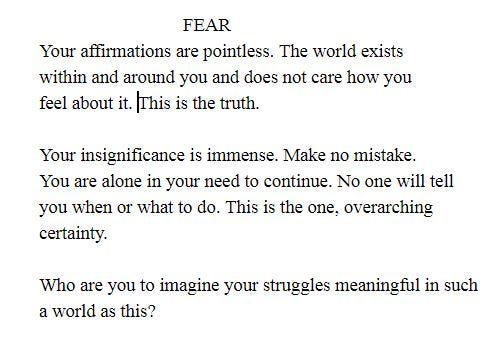
The speaker’s thoughts range freely over the past and the future and so there is no logical and chronological development. This abrupt beginning is followed by self-introspection on the part of the speaker, and the whole gamut of his moods, emotions, reflections and meditations is given. Similarly, FraLippo Lippi has a very dramatic beginning. Thus My Last Duchess opens with a reference to a picture of the dead Duchess, with clear indications that it is being shown to someone. For this reason, his monologues have an abrupt, but very arresting opening, and at the same time, what has gone before is suggested clearly or brought out through retrospective meditation and reflection. Unlike a dramatist, Browning does not begin slowly with an action leading to the crisis, rather he plunges headlong into the crisis. In each monologue, the speaker is placed in the most momentous or critical situation of his life, and the monologue embodies his reactions to this situation. The monologue develops character not through outward action and conflict as in the drama, but through the clash of motives in the soul of the speaker, and with this end in view, a moment of crisis is chosen, a movement when his personality is most active. The thoughts and emotions of the individual character are the actors, and his soul is the stage. In the drama the action is external n the monologue the action is entirely internal. The dramatic monologue differs widely from the drama in its purpose and its method. The salient features of the dramatic monologue are best brought out through comparison and contrast both with the drama proper and the soliloquy. The form is also referred to as monodrama. It is a ‘monologue’ because it is a conversation of a single individual with himself (Mono’ means ‘one’, and ‘logue’ means ‘conversation’). The Dramatic Monologue is, ‘dramatic’, because it is the utterance of imaginary characters and not of the poet himself, and because in it character is developed not through any description on the part of the poet, but through a conflict between the opposite thoughts and emotions of the character himself. The form enabled him to exercise his dramatic bent freely, as well as to play effectively his role as a teacher. Moreover, he knew that advice given directly, “glances off athwart the mind,” while truths expressed indirectly set men thinking and so have their due effect. The views were expressed by other characters, and so they could not be imputed to him. It is an oblique or indirect mode of expression, and so the poet could freely express his views without fear of hostile criticism. Browning made this form entirely his own, because it suited his genius, and also because it had a number of other advantages.

Unhampered by the limitations of the stage, he could now depict, “the phenomena of the mind”. In other words, he could dispense with all, ‘external machinery’ of action and plot, and concentrate his attention on, “the incidents in the development of a soul”.

Browning did not invent the dramatic monologue, but he made it especially his own, and no one else has ever put such rich and varied material into it.

The Dramatic Monologue was used by Browning with amazing skill and success.


 0 kommentar(er)
0 kommentar(er)
